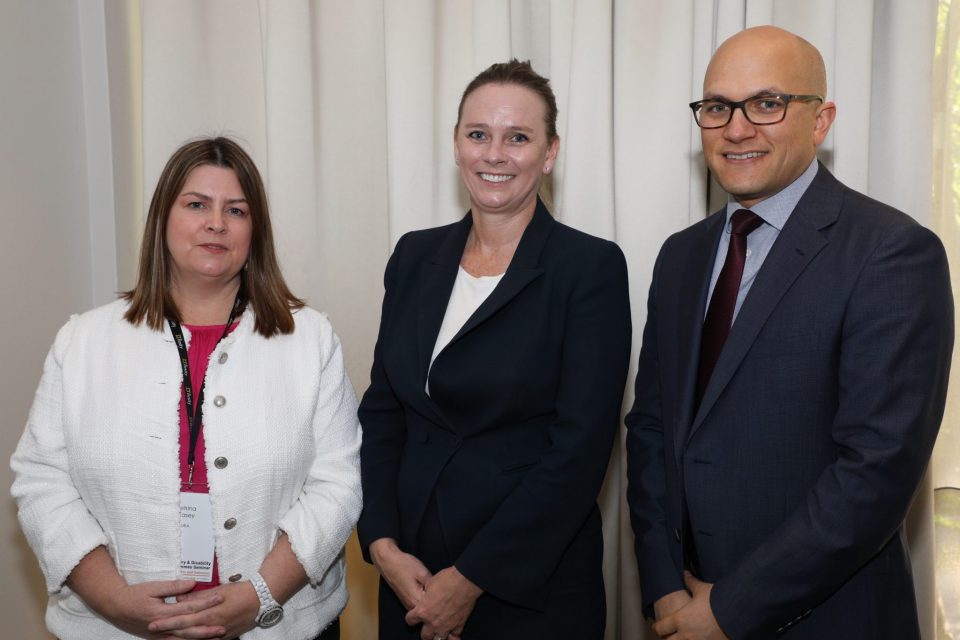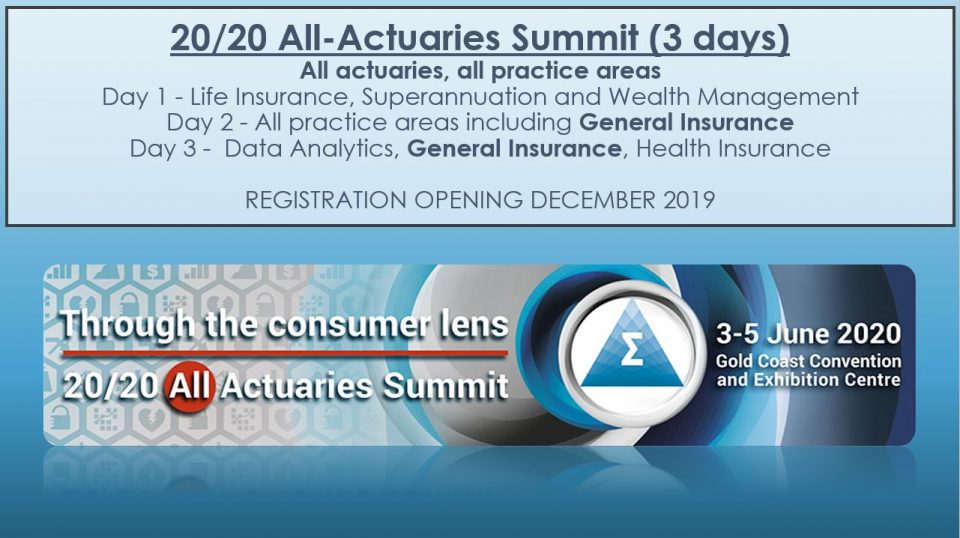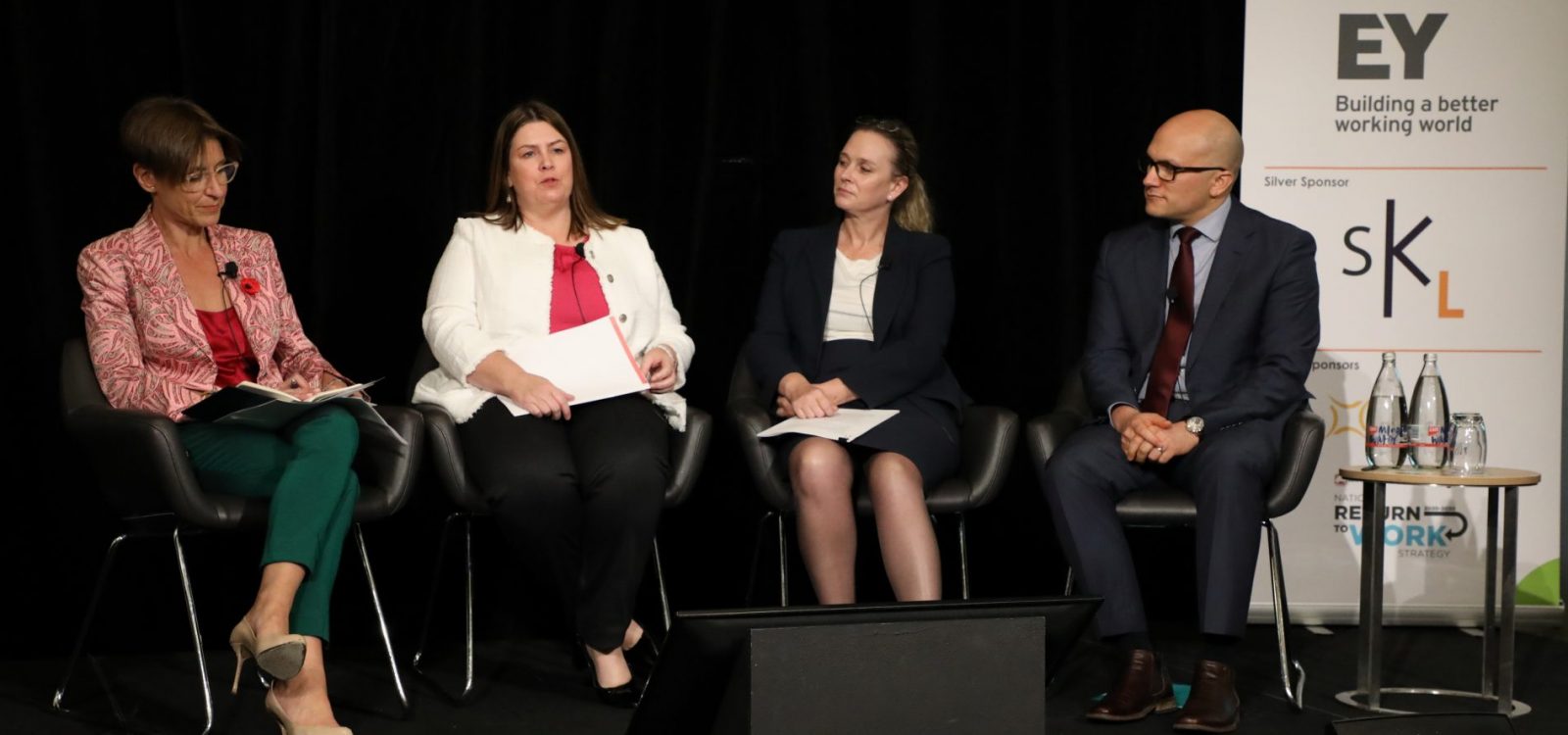
Keeping customers at the centre of injury schemes
Choice, dignity and quality of life: three essential values for ‘customer centricity’ and better outcomes for people impacted by injury and disability. How we uphold these values was passionately debated at IDSS 2019.
More than 300 people came together for the 2019 Injury and Disability Schemes Seminar (IDSS) in Canberra on Monday 11 and Tuesday 12 November. The event, run every two years by the Actuaries Institute, is a popular one among actuaries, scheme administrators, regulators, researchers, injury and disability specialists and service providers throughout Australasia.
They come to hear state updates on the respective schemes; progress reports on national initiatives; and to share new thinking on how to improve outcomes for individuals and effectiveness of the system.
The usual mix of themes – technology, measuring outcomes, personal experiences, mental health and empowering customers filled the 2019 Program. Some excellent presentations were delivered from more than 80 speakers – organised by a dedicated Committee of Institute volunteers.
View all presentations from IDSS 2019.
The First Plenary concentrated on customer centricity. This should always be a priority in schemes, but with the recent findings of the Banking Royal Commission, and the NSW Government’s world-first appointment of a Minister for Customer Service in Victor Dominello, the time is riper than ever for a hard look at it.
Keeping customers first
Petrina Casey (pictured below) is Director Health Strategy at the State Insurance Regulatory Authority (SIRA) which regulates mandatory insurance schemes in NSW. An important point Petrina raised was that when customer empowerment is lost there is perceived injustice and this has shown to lead to adverse recovery outcomes and poor relationships with providers.

To make customer centricity sustainable, beyond individual interactions, customers need to be part of the design and implementation of schemes,” Petrina said.
Jason Lardelli (pictured below), Senior Manager for Scheme Performance at The Transport Accident Commission (TAC), acknowledged several lessons for the TAC: that it didn’t engage with customers consistently enough or before decisions were made; that it pulled too many levers simultaneously, so that the impact of changes could not be effectively measured; and that it should “make the complicated simple” for customers. TAC has built a new model around tailored responses to try and achieve a better fit for each client’s individual needs, regardless of whether they fall into the TAC category of ‘Rapid Recovery’ (80% of TAC clients with low/moderate needs), ‘Supported Recovery’ (19% with high needs) or ‘Independence’ (1% with an acquired disability).
TAC has built a new model around tailored responses to try and achieve a better fit for each client’s individual needs, regardless of whether they fall into the TAC category of ‘Rapid Recovery’ (80% of TAC clients with low/moderate needs), ‘Supported Recovery’ (19% with high needs) or ‘Independence’ (1% with an acquired disability).
Clients are best placed to provide insights on changes that affect them…understanding this is fundamental to our mission to be to world’s leading social insurer, said Jason.
A 2012, 1,600 client longitudinal study by TAC showed six pillars that affect ‘life back on track’ outcomes, which customers can experience substantial difficulty in (in more than one of these areas):
- mental health
- persistent pain
- physical health
- service environment
- accident response
- recovery expectations
The TAC’s testing with restorative justice is perhaps a strong example of making the ‘complicated simple’. This process allows clients to discuss the personal impacts of trauma to improve healing, help obtain closure, and enable parties to be held to account and express remorse.
Client centric ideas of what the TAC can do differently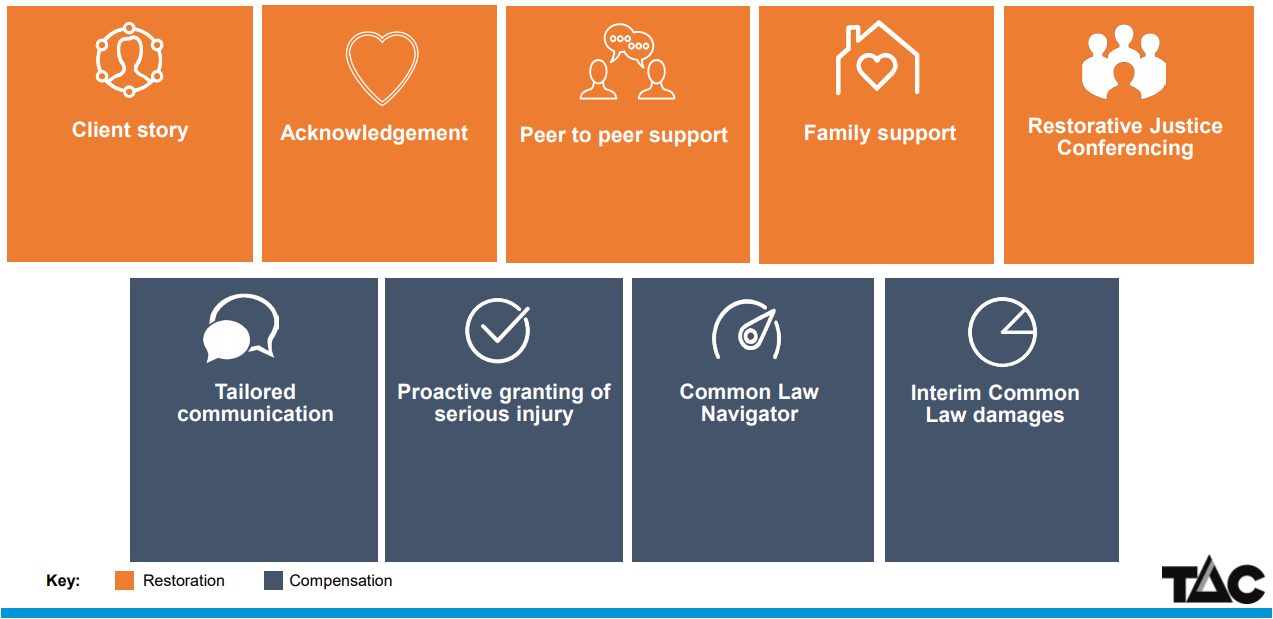
|
IDSS Facilitator Emma Alberici (ABC’s chief economics correspondent) asked the tough questions:
|
The role of data
Governments are harnessing data analytics capability and behavioural insights to improve outcomes. So, how are insurers doing on this front?
Beth Uehling (pictured below), Group Executive, Personal Injury at icare outlined icare’s new ‘Secure Claims Portal’ which aims to use data in a triage model, to match care and services to the level of claim.
“[The model] collects data points and bio-psycho-social factors and increases accuracy as it runs,” she said, adding that the new system aims to deliver faster support and decisions via accurate triage segmentation, automatic treatment approvals and better understanding of customers through its CRM.
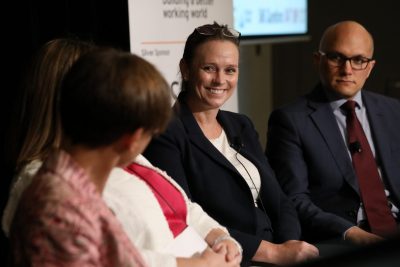 Beth said the icare recently collected 22,500 survey responses from workers, employers and providers that showed the key improvements workers want are:
Beth said the icare recently collected 22,500 survey responses from workers, employers and providers that showed the key improvements workers want are:
- suitable rehabilitation and recovery;
- more empathy;
- faster processing times; and
- to be kept up to date.
The key improvements employers want were said to be:
- better claims processes;
- improved policy renewal process and customer service; and
- input into decisions.
The most important metric of all
John Walsh AM, leading actuary and disability advocate (who gave the Keynote Address shortly after Plenary One) made the important point that for a long time, we’ve collected mainly participant input data, financial data and utilisation data, but not so much outcomes in the longer term.
WATCH John discuss the role of actuaries in this short interview at IDSS 2019:
“As actuaries if we talk with our administrators to expand the data collections to include outcomes, we can add that to our analysis set and include it in our longer-term success forecasts,” said John.
John Walsh said it was gratifying to see the change in tone of the conference and the ‘customer centricity’ discussion was surely a part of this.
What are your views on how actuaries, administrators and health professionals can take a whole person view and achieve better outcomes for injured participants and people with disabilities? Share a comment below.
View Jason (TAC), Beth (icare) and Petrina’s presentations or view all presentations from IDSS2019.
CPD: Actuaries Institute Members can claim two CPD points for every hour of reading articles on Actuaries Digital.



